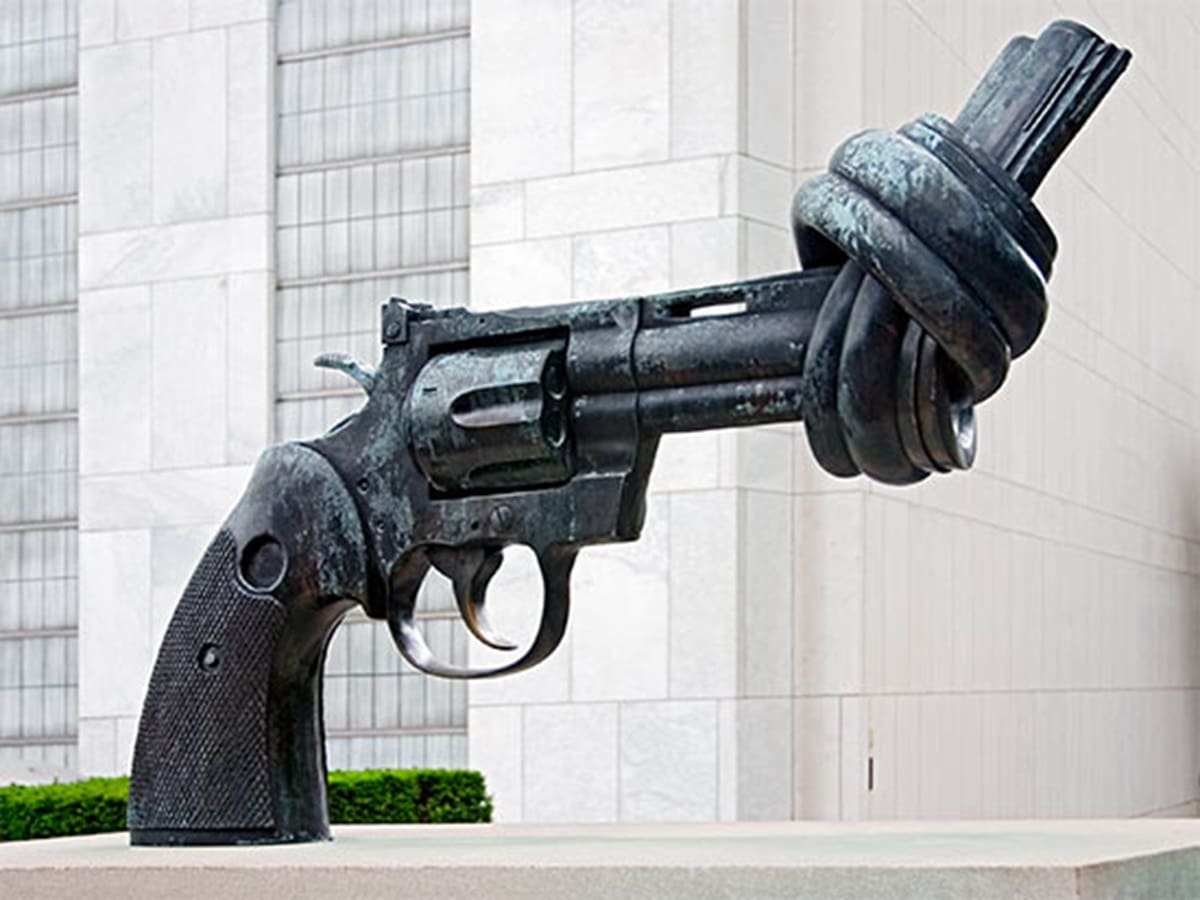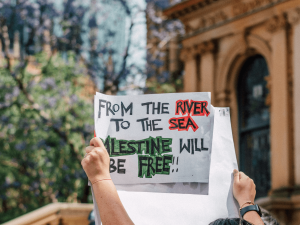The following article is a comment piece from the Peace Pledge Union
On the 80th anniversary of D-Day, peace campaigners have called for remembrance of all victims of war in a spirit of reflection, rather than celebration.
D-Day: romanticised by politicians and charities
Events to mark the anniversary are happening around the UK, with official commemorations in Portsmouth and Normandy. The Royal British Legion has encouraged people to ‘celebrate the legacy’ of those involved. Further events on Armed Forces Day later this month (29 June) will mark the anniversary with 1940s-style entertainment, including music and games aimed at children.
White poppy wearers and members of the Peace Pledge Union (PPU), have called on event organisers not to glorify or simplify the history of D-Day and the events that followed. They will join others in remembering the Allied casualties, whilst also insisting on the importance of remembering civilians and people of all nationalities killed.
The PPU accused politicians including Rishi Sunak and Grant Shapps of romanticising D-Day through constant references to heroism and sacrifice, with little reference to the widespread suffering caused by the fighting.
The Normandy landings on 6 June are often characterised as a turning point in the struggle against tyranny. King Charles, speaking in Portsmouth, said the Allied troops:
liberated France and ultimately the whole of Europe from the stranglehold of a brutal totalitarianism.
PPU members have pointed out that, although some parts of Europe were liberated, others were immediately reoccupied by the Soviet Union, while in other places, such as Greece, British forces violently repressed left-wing movements to prevent them taking power, sometimes with the help of Nazi supporters.
They also commented that D-Day marked the beginning of a period of brutal fighting across Europe that killed thousands of French civilians and hundreds of thousands of Allied troops. German military and civilian casualties escalated sharply too, with millions killed between D-Day and the end of the war.
We can’t view Normandy in isolation
The PPU, founded in 1934, is one of the UK’s oldest pacifist organisations. It referred to the Allied advance at the time as ‘liberation through devastation’, pointing out the scale of the destruction and civilian deaths in France.
During WWII the PPU campaigned against the Allied bombing of German towns and cities, offered support to victims of German bombing raids in Britain, and called for measures to end the mass starvation in Europe caused by the war.
Geoff Tibbs, the PPU’s Remembrance project manager, said:
D-Day is often viewed in isolation, as the moment that turned the tide. But it was only the beginning of a period of intense fighting across Europe, from both the West and the East, which left cities in ruins and millions dead, injured, raped or homeless.
Far from advertising the virtues of a just war, D-Day and the events that followed show the intolerable human cost of war. This anniversary should renew our commitment to the struggle for a world without war today.
D-Day: promoting the wrong message about war
The PPU promotes the white poppy in the run up to Remembrance Day each year. In contrast to the red poppy, which commemorates British and allied military victims of war, the white poppy stands for remembrance of all victims of war, including civilians and people of all nationalities. It also symbolises an opposition to militarism and an active commitment to peace.
PPU members will protest Armed Forces Day on 29 June, in order to challenge the simplistic image it promotes of war and armed force. As well as D-Day commemorations, Armed Forces Day will feature ‘family fun days’, inviting children to handle real weapons.
Featured image via the Peace Pledge Union




